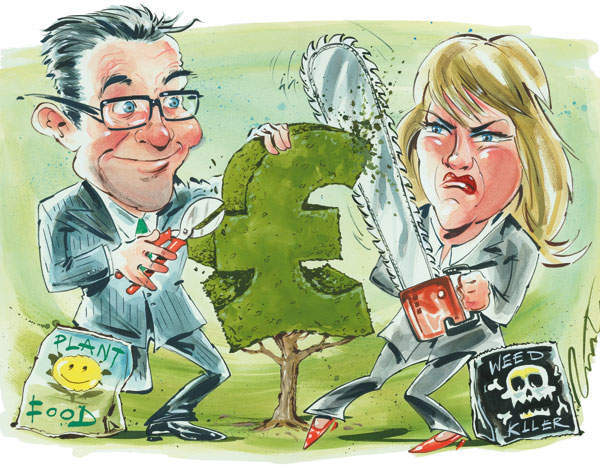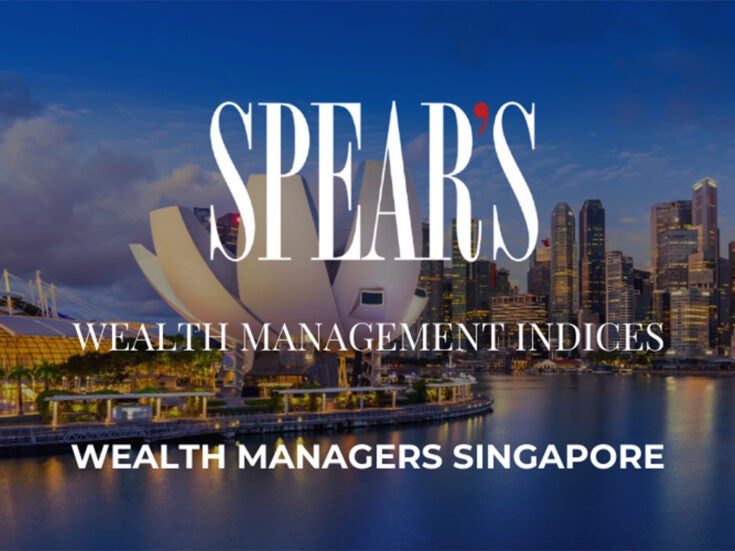

HEDGE TRIMMERS
By the 1990s, wrote Sebastian Mallaby in his book More Money than God, ‘the hedge-fund titans were the new Rockefellers, the new Carnegies, the new Vanderbilts. They were the new American elite — the latest act in the carnival of creativity and greed that powers the nation forward.’
Mallaby’s 2010 book defended hedge funds against the charge that their short-selling activities against national currencies and publicly owned investment banks had precipitated the global economic crisis in 2008, and he feared that over-regulation would ‘encourage the industry to become a very large, concentrated set of players instead of a lot of scrappy start-ups’.
Since 2010 numerous hedge-fund managers have fallen from grace because of under-performance, sparking a lively debate about the structure and scale of hedge-fund fees, and while the threat of over-regulation seems to have abated, the industry has consolidated, with ‘scrappy start-ups’ finding it harder to survive.
Of the roughly 10,000 hedge-fund managers on the planet, perhaps as few as 1,000 are actually any good at generating alpha — the term for risk-adjusted returns above the overall market that can be attributed to a hedge-fund manager’s skill. The more funds that are out there, the fewer the opportunities to generate alpha.
What is more, the hedging effect of hedge funds did not work in 2008. According to JP Morgan veteran Simon Lack in his 2012 book The Hedge Fund Mirage, the hedge fund industry ‘lost more money [in 2008] than all the profits it had generated during the prior ten years’.
Before 2008, Charles MacKinnon, one of the founding partners of wealth manager Thurleigh, had felt that the 20 per cent performance fee was a reasonable price to pay for the apparent protection that the hedge funds were offering against a cyclical downturn. But after 2008 he discovered that hedge funds afforded his clients no protection, and in fact the structure of the hedge fund meant that in some cases they could never exit.
‘They have the ability to lock you in, to continue to hold an asset and to charge you a fee for holding it,’ he explains. ‘They can decide when to dispose of it. I can buy a long-only fund paying twenty basis points, not 200 basis points, hold some money in cash, pay no performance charge and achieve pretty much the same thing. So we hold no hedge funds.’
score draw
The fee structures of hedge funds resemble private-equity fee structures, consisting of a management fee of 2 per cent and a performance fee of 20 per cent — the so-called two and twenty. Although the performance fee means that the investor is aligned with the manager, says Meena Lakshmanan, who set up the hedge-fund advisory service for wealth managers Vestra Wealth, it ‘is not charged on the basis of realised profit, as with private equity, but on the basis of mark to market. With the current fee structure, investors only get 80 per cent of the upside and take part in 100 per cent of the downside performance.’
MacKinnon shares her misgivings: ‘What I would like is a private equity-type form of payment, which means the managers get their performance fee when we get our cash back, because at that point we know if they’ve performed. With a private equity fund the manager draws down the money, then the day the fund gets its performance fee is the day you get cash.
Hedge funds, on the other hand, charge you that fee once every quarter. If approached by hedge funds, I say, “I love the strategy, I love the way you think, and I’m happy to pay you 20 per cent of the performance, but only if that’s on the same day I cash out.”‘ Hedge funds have stopped calling him.
This unfairness is exacerbated because few hedge funds apply a hurdle rate — a minimum rate of return to be achieved before fees kick in. ‘If cash, say, is 5 per cent and the hedge-fund manager makes 8 per cent performance, he will get 20 per cent of that 8 per cent, which is not really fair because he’s only made 3 per cent extra,’ explains Vestra Wealth’s Lakshmanan.
According to Simon Lack’s analysis, from 1998 to the end of 2010 hedge funds took fees of $379 billion, leaving investors profits of $70 billion, which means that hedge funds pocketed 84 per cent of the profits while their investors had to be content with 16 per cent.
Adjusting the indices for ‘survivor bias’ (ie including funds that had closed as a result of failure), the fees are reduced to $324 billion, but the total return to investors in hedge funds was a loss of $308 billion. No wonder Lack has called hedge funds a ‘giant wealth-transfer machine’ from investors to managers.
Alpha course
But Sebastian Mallaby takes issue with this. ‘What this misses is that portfolio managers seek optimal risk-adjusted returns. If hedge funds produce unconventional returns [alpha] not correlated with conventional benchmarks [beta], then including them in your portfolio can actually reduce volatility and risk. On this basis, even a 1 per cent return per year would be worth it for a large portfolio, since it would deliver extra return coupled with reduced risk.’
Indeed, Mallaby prefers to rely on the peer-reviewed research of Roger Ibbotson, who continues to find that hedge funds are capable of generating positive alpha, although less so than in the past. ‘The bottom line,’ says Mallaby, ‘is that hedge funds still seem to provide value for clients, but the value may be diminishing and it’s hard to predict what the empirical verdict will be five or ten years from now.’
Mallaby’s perception is echoed by Odi Lahav, CEO of investment advisers Allenbridge Investment Solutions, who cites research showing that the better-performing funds which are uncorrelated to the market tend to remain so, meaning that ‘as an investor you are still able to benefit from the diversification aspect of adding those hedge funds to a portfolio.’
The hedge fund industry is ‘ultimately the most Darwinian of industries’, says David Yarrow, the founding partner of Clareville Capital, whose Pegasus fund was the UK’s best-performing mid-sized fund in 2013. ‘And quite rightly so. If you can’t help people, you go down.’
He believes the trajectory for fees over the next five years, on average, will be downwards. ‘For the bigger funds, two and twenty will be here to stay. Dare I say it, we don’t charge two and twenty; we charge one-and-a-half and fifteen. But ironically, long-only fees are coming down more in percentage terms than hedge-fund fees.’
Yarrow believes that the biggest issue for the hedge fund industry, as the global economy and the UK economy recover, is whether funds should want to be hedged. ‘If UK GDP is growing, I just don’t want to be hedged, I’d rather just be 100 per cent exposed to it — and a lot of other hedge fund managers will tell you the same thing. The absolute return model will come back into play the next time we have a downward lurch in the cycle.’








